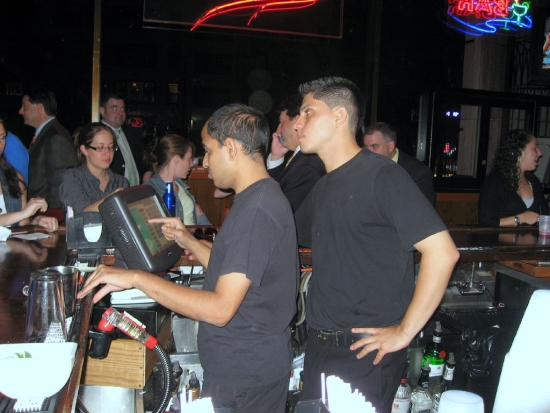While the recession may be over, Britain is still a long way from full economic recovery. Many consumers are struggling to find the balance between saving and spending, especially as new figures have revealed that almost one in five workers in the UK do not earn enough per hour to maintain a satisfactory standard of living – a fact that must be changed if the retail and leisure industries are to return to similar levels of profitability as seen before the start of the recession in 2008.

According to KPMG, the living wage is a voluntary rate of pay set by some employers in order to allow an easing of the financial burden on their staff. Currently, it is set at £8.30 per hour in London and £7.20 in the rest of the country. KPMG adds that, since its introduction in 2001, £96 million has been redistributed to some of the UK’s lowest paid workers, thus helping more than 10,000 families through times of economic difficulty.
While the National Minimum Wage is set at £6.19 per hour, for many people this is simply not enough to allow for a comfortable standard of living. With food, gas and petrol prices consistently rising year upon year, 41 per cent of low paid workers now believe their financial situation to be worse than what it was only last month. Of course, the recession is still having repercussions on most of society, but it stands to reason that the lowest paid workers will be the ones struggling most to balance their personal finances.
TUC general secretary designate Frances O’Grady says; “It is shocking that in this day and age one in five workers is still earning less than is needed to maintain a decent standard of living.
“The living wage is not a luxury and means that low paid workers do not have to make tough choices over whether they can afford the everyday things that most of us take for granted, such as their fuel bill or a winter coat for their children.
“Many more employers could afford to adopt the living wage and we hope that many more decide to pay it in the coming months – now more than ever is the time for employers to put an end to poverty pay.”
Also found in the KPMG study was the fact that the proportion of workers receiving the living wage varies depending on the industry they are employed in. The hospitality industry, for example, has the lowest percentage of workers receiving the living wage. 90 per cent of bar staff do not receive the higher rate of pay, instead generally earning the National Minimum Wage or slightly more per hour. This drops to 85 per cent in the waiter and waitress category.
The vast majority of kitchen and catering staff, launderers and dry cleaners, florists and cleaners also tend to earn less per hour than the recommended living wage.
Of course, with so many in society earning less than is expected to allow them to live a financially comfortable lifestyle, other industries are affected. The retail industry, which took a heavy knock during the double dip recession, now needs consumers to spend in order to bring many chain and independent retailers back into profitability. However, with 46 per cent of those earning less than the living wage stating that they are less inclined to make any major purchases than they were last month, a sharp, much needed rise in retail revenue seems unlikely.
Job security is also a major concern for lower paid workers, even though the immediate threat of the recession is over. 23 per cent of below living wage workers believe that their job security is worsening, compared with only 16 per cent receiving the living wage or higher.
Marianne Fallon of KPMG believes that employers have the responsibility of ensuring their workers earn a fair wage, and claims that their business will reap the benefits of this small increase in monthly pay.
She says; “Paying a living wage makes a huge difference to the individuals and their families and yet does not actually cost an employer much more.
“At KPMG, we have found that the improved motivation and performance, and the lower leaver and absentee rate, amongst staff in receipt of a living wage means that the cost is offset and paying is the right thing for our business.
“With Living Wage Week fast approaching, we would urge more big employers to consider paying their staff a wage that means they can afford a socially acceptable quality of life.”
However, general secretary of Unite, Len McCluskey, believes that the responsibility to ensure workers in society are paid a fair wage lies with the Government.
He says; “While the City continues to enjoy obscene bonuses, ordinary working people are struggling to get by as the Government’s failed economic policies take their toll.
“Our own research shows that, on average, people are being forced to borrow over £325 a month to pay for essentials such as food and housing costs.
“The Government needs to introduce an immediate increase in the minimum wage of one pound an hour as a step towards a living wage and to help boost the economy by putting money in people’s pockets.”
Do you think employers should be offered incentives to pay their workers the recommended living wage, perhaps in the form of tax or business rate relief? Or do you agree with Mr McCluskey – that the Government should increase National Minimum Wage as a means of lessening the financial burden of low paid workers?
Previous Post
Which are the Best and Worst Hotels in the UK?